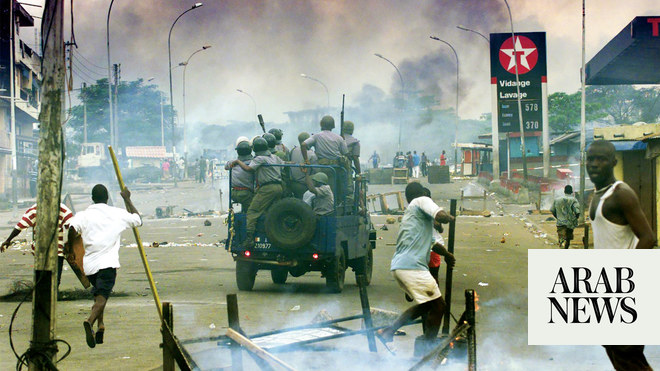
The Turkish parliament this week approved an extension of the mandate for naval troop deployment in the Gulf of Aden, Somalian waters and the Arabian Sea. Since it was first approved by parliament in 2008, the motion for this deployment has been extended annually. Normally, the extension is not newsworthy; however, this time it coincided with news of the kidnapping by pirates of Turkish sailors in the Gulf of Guinea.
In an attack last Saturday, 15 of 19 Turkish crew members of a cargo ship were abducted, while an Azeri national was killed. The pirates who carried out the kidnapping had not made any contact as of Monday, according to Turkish Foreign Minister Mevlut Cavusoglu. He said the government was closely monitoring the situation and had been in touch with all regional countries regarding the search and rescue efforts. Saturday’s incident was brutal to the point that it prompted a call to the UN for joint action against piracy. According to data from the International Maritime Bureau, there were 195 pirate attacks on vessels last year — 33 more than in 2019.
After taking most of the crew hostage, the pirates left the ship in the Gulf of Guinea with three sailors aboard, after disabling most of the ship’s systems. Turkish President Recep Tayyip Erdogan has twice spoken to the most senior officer remaining on board. In July 2019, 10 Turkish seamen were kidnapped off the coast of Nigeria. They were released less than a month later.
The Gulf of Guinea is considered the most dangerous area in the world for piracy, and Turkish ships largely avoid the routes that are often infested with armed assailants hoping to take over ships. Turkey has been instrumental in the fight against piracy, as it commanded the Combined Task Force between June 25 and Dec. 10 last year, taking in the Gulf of Aden, the Somali coast, and the Indian Ocean.
Since their deployment, Turkish navy commandos have been quite effective in preventing piracy in the Gulf of Aden, and in 2009 they detained pirates trying to hijack a Greek boat. The incident in the Gulf of Guinea has increased Turkish concerns about the situation in West Africa which has become an area of interest to Ankara in recent years.
Although Turkey"s involvement in West Africa is less than in Somalia, Ankara pays close attention to what happens in West Africa and the Sahel. Therefore, Turkish officials’ visits to the countries in this region have mainly involved the inking of agreements related to military cooperation.
The Sahel, which includes Mauritania, Mali, Niger, Chad and Burkina Faso, is another troublesome area, which faces challenges caused by violent extremism and terrorists such as Daesh and Al-Qaeda elements. Securitization and militarization are the two key elements in Turkey’s relations with the countries in this region due to the interlinked and complicated security and geopolitical scenes in the Sahel and West Africa.
During a 2018 visit to Mauritania, Erdogan announced that Turkey would donate $5 million to a fledgling force of five nations battling terrorism and trafficking in the Sahel. “Turkey is one of the countries which best understands the dangers with which you are confronted in the Sahel. We have therefore decided to give $5 million to help the G5 Sahel force,” Erdogan said. G5 Sahel, gathering Burkina Faso, Chad, Mali, Mauritania and Niger, aims to train and equip 5,000 troops to restore authority in lawless areas where terrorists have gained a foothold.
Niger is at the heart of international counterterrorism strategies for the region. Last July, Cavusoglu visited the country and signed military cooperation and other agreements. This was read as the first stage ahead of Ankara opening a military base in the country, in addition to its existing ones in Qatar, Libya and Somalia. This would give Turkey a foothold in a third African country.
In the early 2010s, Turkey made its first humanitarian overtures in Somalia. That bilateral relationship quickly deepened and Turkey gained military and political power in the region. Somalia is a very good example to show how Turkey’s soft power elements are incorporated with hard power instruments.
Since 2015, a militarized approach has been part of Ankara’s relations with both West and East African countries.
Sinem Cengiz
Security plays a key role in Turkey’s Africa policy. Since 2015, a militarized approach has been part of Ankara’s relations with both West and East African countries. This is evident in the security cooperation agreements signed by Turkey with most countries in the region, such as Mauritania, Chad, Sudan, Guinea, Nigeria, Benin, Gambia, and, lastly, Niger.
As Joseph Nye, the political scientist who coined the term “soft power” in the early 1990s, pointed out, there is no difference between hard power and soft power in terms of their aims. But, although the objectives are the same, the means are very different. Aware of this fact, Turkey has therefore been applying a combination of soft and hard power to expand its role in the Sahel and West Africa, widening its sphere of influence.
These Turkish moves are a reflection of the long-term strategy that Ankara aims to build strong relations with the countries of the Sahel and West Africa. Expanding the scope of political, economic and military influence in this region is the strongest motivation of this strategy. However, in addition to the disquieting risks the region is posing, the Sahel and West Africa is also a theater for many international and regional actors, something that limits Turkey’s room for maneuver.
Sinem Cengiz is a Turkish political analyst who specializes in Turkey’s relations with the Middle East. Twitter: @SinemCngz
Disclaimer: Views expressed by writers in this section are their own and do not necessarily reflect Arab News" point-of-view












